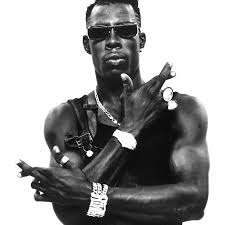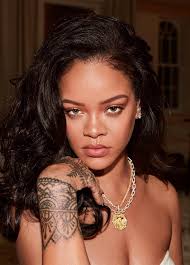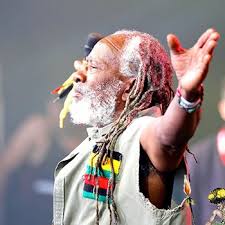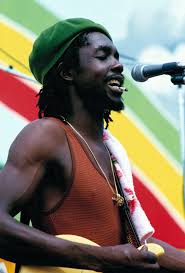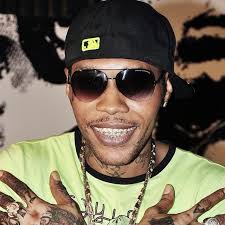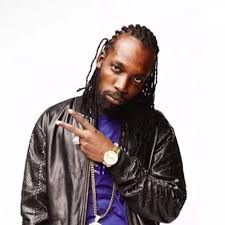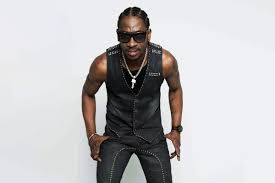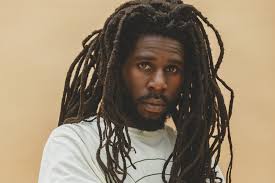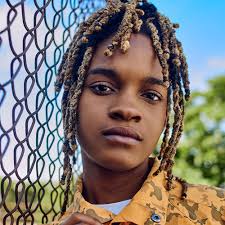Jamaican music, with its infectious rhythms, powerful lyrics, and cultural depth, has captivated audiences worldwide for decades. From the iconic reggae beats of Bob Marley to the energetic dancehall anthems of modern artists, Jamaican music continues to influence and inspire people across the globe. But what is it about this island nation's music that resonates so deeply with such a diverse audience?
The Roots of Jamaican Music: A Blend of Cultures
Jamaican music is the product of a rich cultural tapestry, woven together by the island's history of colonization, slavery, and migration. The music is a blend of African, European, and indigenous influences, creating a sound that is both unique and universally appealing.
African Influence: The African heritage of Jamaica is perhaps the most significant influence on its music. The rhythms, melodies, and instruments brought by enslaved Africans laid the foundation for the island's musical traditions. Drumming, call-and-response singing, and the use of traditional African instruments like the drum and maracas are still prevalent in Jamaican music today.
European Influence: The European colonizers also left their mark on Jamaican music. British folk songs, hymns, and classical music introduced melodic structures and harmonies that were integrated into the island's music. The influence of European instruments like the guitar and piano can be heard in many Jamaican genres.
Indigenous and Creole Influence: The indigenous Taino people contributed to the island's musical landscape, particularly with instruments like the maracas and rhythms that have been incorporated into Jamaican music. Additionally, the Creole culture that developed in Jamaica as a result of the blending of African, European, and indigenous influences gave rise to unique musical styles that reflect the island's multicultural heritage.
This rich blend of cultural influences created a fertile ground for the development of various musical genres, each with its own distinct sound and appeal.
The Rise of Reggae: A Global Phenomenon
Reggae is undoubtedly the most internationally recognized and beloved genre of Jamaican music. Emerging in the late 1960s, reggae was a fusion of earlier Jamaican styles like ska and rocksteady, combined with elements of rhythm and blues, jazz, and African music. The genre's slow, laid-back rhythms, soulful melodies, and socially conscious lyrics quickly resonated with audiences both in Jamaica and abroad.
Bob Marley: The Reggae Icon
No discussion of Jamaican music would be complete without mentioning Bob Marley, the artist who brought reggae to the world stage. Marley's music, with its messages of love, peace, and resistance, transcended cultural and geographical boundaries. Songs like "One Love," "No Woman, No Cry," and "Redemption Song" became anthems for social change and unity, inspiring movements around the world.
Marley's appeal lies not just in his musical talent but in the universal themes he addressed in his songs. His lyrics spoke to the struggles of the oppressed, the need for justice, and the power of love and unity. This message resonated with people from all walks of life, making Marley a global symbol of peace and resistance.

Reggae's Universal Appeal
Reggae's popularity extends far beyond Jamaica's shores. The genre's infectious rhythms and relatable themes have made it a favorite among music lovers worldwide. Reggae festivals are held in countries as diverse as Japan, Germany, and Brazil, attracting thousands of fans who share a love for the music and its message.
One reason for reggae's universal appeal is its ability to convey powerful messages in a way that is both accessible and enjoyable. The genre's focus on social justice, human rights, and environmental issues resonates with people across cultures and generations. At the same time, the soothing, hypnotic rhythms of reggae provide a sense of peace and relaxation, making it a genre that can be enjoyed in any setting.
Dancehall: The Pulse of Jamaican Music
While reggae has captured the hearts of many around the world, dancehall is the genre that defines contemporary Jamaican music. Emerging in the late 1970s, dancehall is characterized by its fast-paced rhythms, catchy melodies, and bold lyrics. The genre is a reflection of Jamaica's vibrant street culture, with its themes often centered on daily life, love, and social issues.
The Energy of Dancehall
Dancehall's high-energy beats and infectious hooks make it a favorite in clubs and dancehalls around the world. The genre's ability to get people moving is one of its biggest draws. Dancehall tracks like Sean Paul's "Get Busy," Shabba Ranks' "Mr. Loverman," and Beenie Man's "Who Am I" have become global hits, dominating charts and dance floors alike.
The genre's appeal is further amplified by the dance culture that accompanies it. Dancehall music is often associated with specific dance moves, and dancehall dancing has become a global phenomenon in its own right. From Kingston to Tokyo, people are learning and performing dancehall moves, making the genre a staple in dance culture worldwide.
Lyrical Prowess and Controversy
Dancehall is known for its bold and often controversial lyrics. The genre frequently tackles themes of sexuality, violence, and social inequality, sometimes sparking debates and controversy. However, this lyrical boldness is also part of what makes dancehall so compelling. The genre provides a platform for artists to express their views on society, challenge norms, and push boundaries.
The raw, unfiltered nature of dancehall lyrics resonates with many listeners who appreciate the genre's authenticity and willingness to address taboo topics. While dancehall has faced criticism for its sometimes explicit content, it has also been praised for its ability to reflect the realities of Jamaican life and give a voice to those who might otherwise be unheard.
Dancehall's Global Influence
Like reggae, dancehall has made a significant impact on global music. The genre's influence can be heard in the work of international artists across various genres, from pop to hip-hop. Artists like Rihanna, Drake, and Major Lazer have all incorporated dancehall elements into their music, bringing the genre to an even wider audience.
Dancehall's global influence is a testament to its versatility and appeal. The genre's infectious rhythms and catchy melodies make it adaptable to different musical styles, while its bold lyrics and cultural relevance ensure it remains a powerful force in the music industry.
The Role of Jamaican Music in Social and Political Movements
One of the reasons Jamaican music is so beloved around the world is its deep connection to social and political movements. Throughout its history, Jamaican music has served as a voice for the marginalized and oppressed, addressing issues of poverty, inequality, and injustice.
Reggae as a Tool for Social Change
Reggae music, in particular, has played a significant role in social and political movements both in Jamaica and globally. The genre's focus on themes of resistance, liberation, and unity has made it a powerful tool for social change. Reggae artists like Bob Marley, Peter Tosh, and Burning Spear used their music to speak out against colonialism, apartheid, and other forms of oppression, inspiring people to stand up for their rights.
Marley's "Get Up, Stand Up" became an anthem for the fight against injustice, while Tosh's "Equal Rights" called for equality and human rights for all. These songs, and many others like them, resonated with people around the world who were fighting for similar causes, helping to spread the message of resistance and empowerment.
Dancehall as a Reflection of Social Issues
Dancehall music also plays a role in addressing social and political issues, albeit in a different way. While reggae often takes a more spiritual and philosophical approach, dancehall is more direct and confrontational. The genre's lyrics frequently address issues like poverty, crime, and social inequality, reflecting the harsh realities of life in Jamaica's inner cities.
Artists like Vybz Kartel, Mavado, and Bounty Killer have used dancehall as a platform to speak out against social injustices and highlight the struggles of the poor and marginalized. Their music resonates with listeners who can relate to these experiences, making dancehall not just a form of entertainment, but also a means of social commentary.
Jamaican Music and Cultural Identity
Jamaican music is deeply intertwined with the island's cultural identity. It is a reflection of the country's history, struggles, and triumphs, and it plays a central role in shaping how Jamaicans see themselves and their place in the world.
The Globalization of Jamaican Culture
As Jamaican music has gained popularity worldwide, it has also helped to spread Jamaican culture to a global audience. Reggae and dancehall have introduced people around the world to the language, fashion, and lifestyle of Jamaica, creating a global fascination with the island's culture.
Rastafarianism, a religious and cultural movement that originated in Jamaica, has been particularly influential in shaping the global perception of Jamaican culture. The Rastafarian emphasis on peace, love, and unity, as well as its distinctive symbols like dreadlocks and the colors red, gold, and green, have become synonymous with reggae music and Jamaican identity.
Jamaican Music as a Unifying Force
Jamaican music has also served as a unifying force, bringing together people from different backgrounds and cultures. The themes of love, unity, and social justice that are prevalent in reggae resonate with people from all walks of life, creating a sense of solidarity and shared purpose.
Music festivals like Reggae Sumfest and Rebel Salute in Jamaica, as well as international reggae festivals, draw diverse crowds of music lovers who come together to celebrate the music and culture of Jamaica. These events create a sense of community and togetherness, highlighting the power of music to bridge cultural and geographical divides.

The Future of Jamaican Music
As we look to the future, it is clear that Jamaican music will continue to play a significant role in the global music landscape. The island's rich musical heritage, combined with its ability to adapt and innovate, ensures that Jamaican music will remain relevant and beloved for generations to come.
Innovation and Evolution
Jamaican music has always been characterized by its ability to evolve and innovate. From the early days of ska and rocksteady to the rise of reggae and dancehall, the island's musicians have continually pushed the boundaries of what is possible, creating new sounds and styles that resonate with audiences worldwide.
Today, a new generation of Jamaican artists is carrying on this tradition of innovation. Artists like Chronixx, Protoje, and Koffee are blending traditional reggae with modern influences, creating a fresh and contemporary sound that appeals to both old and new fans. At the same time, dancehall continues to evolve, with artists experimenting with new beats, rhythms, and lyrical styles.
The Global Impact
Jamaican music's global impact shows no signs of slowing down. The genre's influence can be seen in the work of artists from all over the world, as well as in the continued popularity of reggae and dancehall festivals and events. As the world becomes more interconnected, the reach and influence of Jamaican music will only continue to grow.
In conclusion, Jamaican music is loved by all for its unique sound, powerful messages, and deep cultural significance. Whether through the soulful rhythms of reggae or the energetic beats of dancehall, Jamaican music speaks to the heart and soul of people worldwide, transcending borders and bringing people together. As we celebrate the legacy of Jamaican music, we can look forward to its continued evolution and enduring impact on global culture.
Visit Main Street Rose Hall, Montego Bay when next in Jamaica and buy Jamaican made products at several of their stores and Artisan Craft Market. You can also enjoy our murals, installations, tax-free & souvenir stores, rums & spirts, Jamaican Blue Mountain Coffee, art gallery, resort wear, Jamaican F&B options and much more while relaxing and listening to authentic Jamaican music.
Visit Main Street Rose Hall, Montego Bay when next in Jamaica and enjoy our murals, installations, tax-free & souvenir stores, artisan craft village and Jamaican F&B options while relaxing and listening to authentic Jamaican music.
Follow us on Instagram @MainStreetRoseHall and on Tik Tok @main.street.rose.hall
Take pictures, post & tag us! #MainStreetRoseHall #ExperienceTheBestOfJamaica Main Street Rose Hall support Jamaican Made products. #BuyJamaicanEmployJamaicans



.png)


